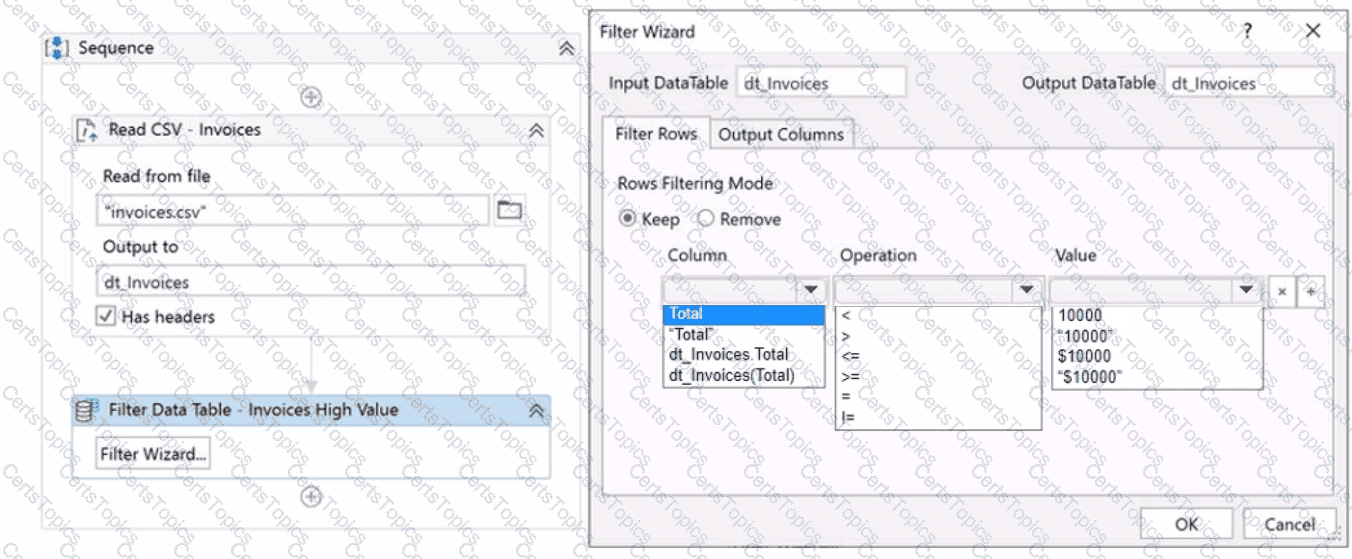Which of the following actions can be performed from the Tenant context in UiPath Orchestrator?
During the unattended robot setup for a self-hosted machine, what must be available in order to assign a new machine template?
A developer is building a process which reads invoice data from the "mvoices.csv " file that includes a Total column of type Double.
Instructions: Using the drop-down lists shown in the following exhibit, configure the Filter Data Table Wizard to keep all invoices with a Total value that is over 10 000 USD.

In the context of a linear process, implemented with REFramework, how many times will the process enter the Get Transaction Data state?